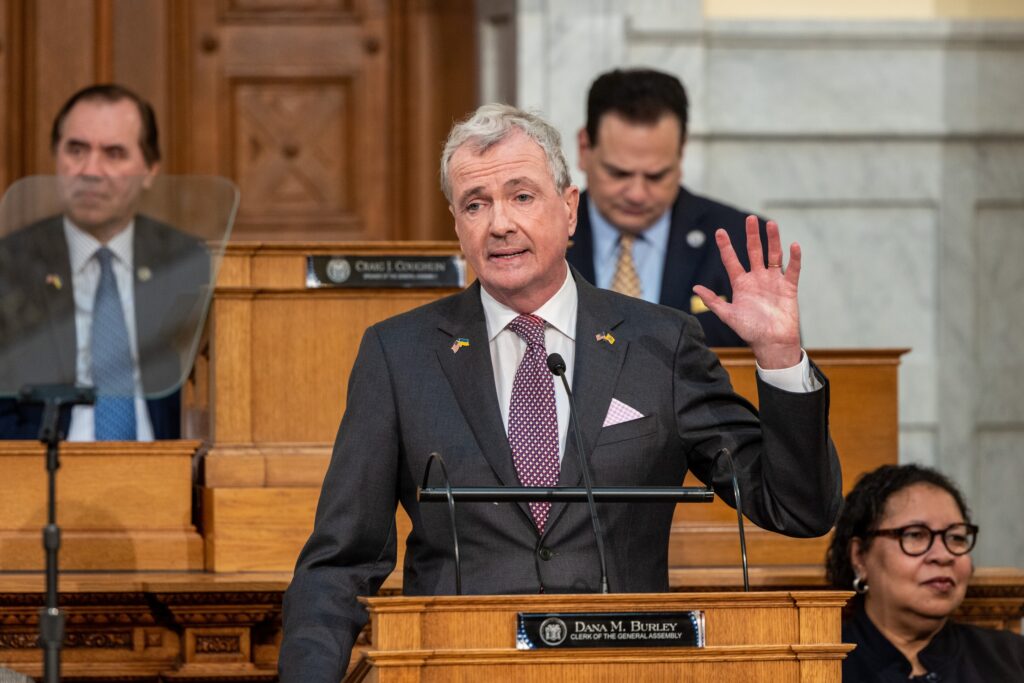New Jersey Governor Phil Murphy on Wednesday signed executive orders that aims to have the state have its entire economy powered by clean energy, end the sale of gasoline powered vehicles and greatly accelerate a switch to electric heating of buildings by 2035 under a series of environmental initiatives announced Wednesday that are designed to make the state a national leader in clean energy.
Under the orders, New Jersey will move up its target of requiring 100% of electricity sold in the state to come from clean energy sources to 2035, Murphy’s office said in a release, as the orders also set goals for the electrification of the state’s building sector and “planning for the future” natural gas utilities.
During a speech at Rutgers University, the Democratic Governor outlined six steps he said are necessary for the state to become “the next New Jersey.”
They include moving up a goal to have the state’s economy be 100% powered by clean energy by 2035 instead of the current target of 2050. Other measures aim to end the sale of gasoline-powered vehicles within that same time frame; install zero-carbon-emission heating and cooling systems in 400,000 homes and 20,000 businesses; and make 10% of all low-to-moderate income properties ready for electric heating and cooling by 2030.
“We are ready to take the next six big steps in our fight against climate change,” Murphy said, before quickly addressing the criticism he predicted would come. “Now, let me make one thing perfectly clear at the outset before the right-wing meme-makers go off: No one is coming for anyone’s gas stove. No one is walking into anyone’s kitchen. No one is going to be forced to do anything, in any way.”
Read also: Scientists say climate change worsened Argentina drought impact
Murphy said that the moves are about “giving consumers more choices and more chances to join us in creating a cleaner, more sustainable, and more affordable energy future.”
They also include convening a study on the future of natural gas utilities with utilities regulators and others who would be affected; spending $70 million toward lowering consumer costs for medium- and heavy-duty electrified vehicles; and proposing new flood protection rules along rivers and coastlines.
Generally, clean energy involves renewable sources like wind and solar.
New grant funding will go toward heavy duty electric vehicles, under the governor’s orders, while the state will also begin the process of requiring all new cars sold starting in 2035 to have zero emissions.
With this mew rule, New Jersey would join California, New York and the European Union in ending gasoline-powered vehicle sales by 2035.
Story was adapted from Reuters Reuters
